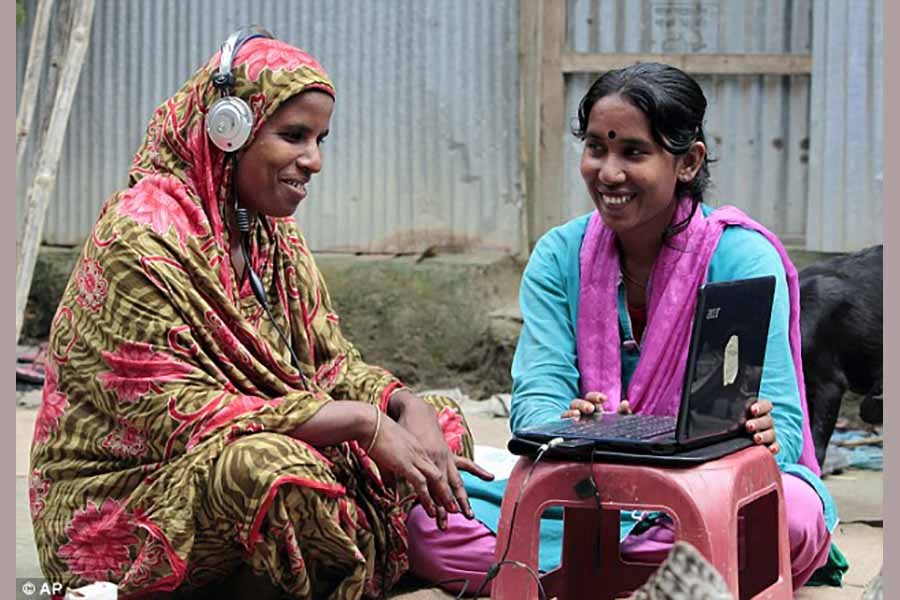As internet continues to cover more areas of the country, the significance of digital education can hardly be overemphasised. Accordingly, digital literacy is being increasingly evaluated as a major tool for economic growth ever since the world was struck by global financial crisis and economic recession in 2008. Since then the policy makers around the world shifted their focus to pro-poor or inclusive growth as they strongly felt that it would ensure all-round development of a country. In a major departure from the trickle-down development concept, the economists highlighted the gap between economic growth and economic development and pinpointed inclusive growth as a major yardstick to measure economic development.
With increasing digitisation encompassing all sectors of our economy, digital literacy has become more of a necessity than an intellectual exercise of the urban elite. For example, a set of skills and knowledge that allows an individual to manage personal finance in an efficient manner, and emboldens the capacity to make appropriate decisions about personal finance is referred to as financial literacy. The lack of financial literacy or financial illiteracy may lead to making poor financial choices that can have wide ranging impacts on the well-being of an individual.
Since women constitute half the world population, associating them in all development activities has become more important than ever before. For example, improving education for women helps them raise their knowledge levels on health and nutrition. In particular, education empowers women to make choices that improve their own and their children's health. Education helps prevent and contain disease, and is an essential element of efforts to reduce malnutrition. Further, education empowers women to make choices that improve their standard of living and welfare. Educating women has become more imperative than before as accessibility and affordability of e-learning (electronic learning) has opened the door for women to study from the comfort of their homes. By empowering themselves educationally through new technologies like e-learning, women can also learn new skills that come in handy in today's global environment.
Understandably, more nations, businesses, communities and groups have acknowledged the benefits of women empowerment as it has long been one of the main concerns while addressing human rights and development. So, empowerment and participation of women in the mainstream development activities have become necessary for a country to overcome poverty and backwardness.
As financial literacy is inseparably linked with internet or digital literacy and as life today is becoming increasingly reliant on digital technology, internet literacy has been considered an important measure of competency in job market. In today's digitised world, people who are unskilled in ICT are lagging behind meaning that digital inequality means socio-economic inequality. More than 70 per cent of our population lives in the countryside and without participation of these teeming millions in development activities of the country, aspirations for improving the lot shall remain unfulfilled. The current information gap between and within different sectors can be bridged easily by providing internet education to people. Our women living in the countryside are being opted out of digital knowledge and kept away from partnering their male counterparts on an equal level.
Women's empowerment has become a significant topic of discussion in development and economics. It also points to adequately strengthening our women in all social contexts. Therefore the need to furnish them with digital knowledge is an unavoidable necessity in today's context. It is imperative for the government to set up informal institutions to make our rural women digitally literate. While the world has achieved progress towards gender equality and women's empowerment, due priority should be given to women and girls in the context of digital literacy.


